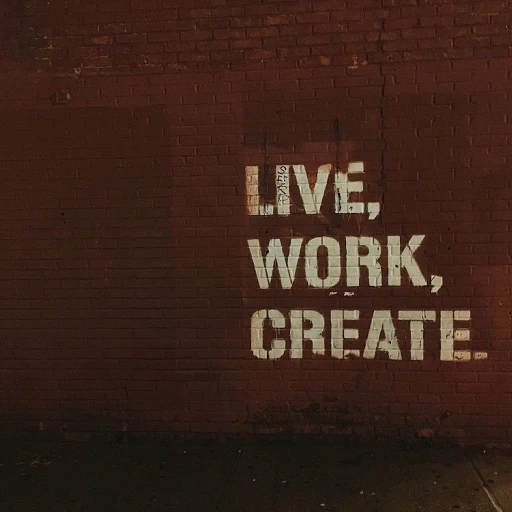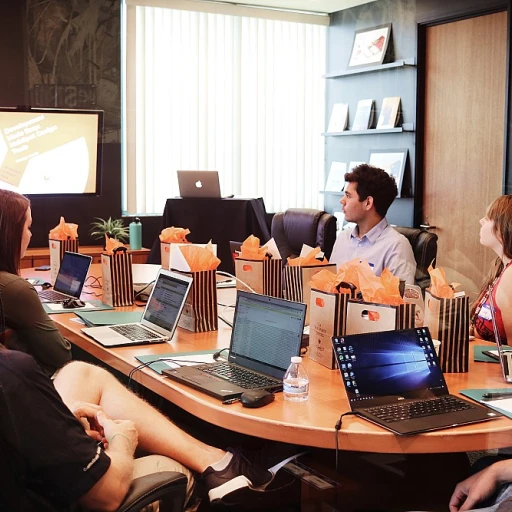
Understanding DEI in Candidate Meetings
Recognizing the Role of DEI in Candidate Engagement
Understanding the intricacies of Diversity, Equity, and Inclusion (DEI) in the context of candidate meetings is a crucial step toward fostering a more inclusive workplace. Often, the foundation of DEI in these scenarios begins with acknowledging how these principles can positively impact the recruitment process and ultimately, the company culture. At its core, DEI revolves around ensuring that all candidates, irrespective of their diverse backgrounds, receive fair and equitable treatment during the hiring process. This not only promotes an equitable workplace environment but also enhances the overall talent pool, as more diverse candidates are attracted to a company that prioritizes diversity inclusion and equity efforts. Organizations that successfully integrate DEI initiatives into their recruitment strategies often experience increased job satisfaction, higher employee retention, and a more innovative business approach. To further enhance this understanding, companies can explore potential opportunities through various career platforms, such as istari careers, which offer insights into attracting diverse talent. As businesses strive to improve DEI in hiring processes, it's imperative to consider the current DEI programs and policies in place. From executive orders to affirmative action measures, these elements play a significant role in shaping an inclusive hiring landscape. Recognizing the direct link between DEI and successful recruitment can provide significant benefits not only in attracting diverse talent but also in aligning with broader company objectives and culture transformations.Identifying Barriers to DEI
Unearthing Barriers to Inclusion in Hiring Practices
Diversity, equity, and inclusion (DEI) are vital components in today’s recruitment landscape, yet their integration in candidate meetings often confronts significant barriers. A principal challenge is the existence of implicit biases, which inadvertently affect the recruitment process. These biases often manifest in subtle preferences toward certain types of candidates, perhaps influenced by societal stereotypes or preconceptions, leading to unequal opportunities for diverse talent to thrive.
Another obstacle is the lack of representation within companies themselves. Without a diverse set of individuals actively participating in hiring panels, the recruitment process can inadvertently skew towards homogeneous outcomes. This lack of representation not only impacts the hiring process but also has lasting effects on company culture and the broader attempt to foster an inclusive workplace.
In certain cases, companies might lack clearly defined DEI policies and initiatives, further exacerbating these issues. Without explicit guidelines or affirmative action efforts, it's too easy for systemic inequities to continue unchecked. Underrepresented groups may find themselves sidelined during the recruitment process due to unaddressed disparities in hiring practices.
Another layer of complexity exists for companies operating within regions under executive orders mandating DEI initiatives. While these executive orders aim to combat inequity, their implementation often faces resistance or misinterpretation at various organizational levels, causing disruptions in advanced DEI guidance and its actual application.
To effectively address these challenges, businesses must also consider how the educational background of job seekers might influence their recruitment strategies and review their hiring processes to ensure they do not inadvertently exclude qualified and diverse candidates. In higher education, there are often systemic barriers that disproportionately affect underrepresented groups, which can have a ripple effect on companies' ability to attract a diverse workforce.
Exploring solutions to these barriers requires a concerted effort that acknowledges and addresses these complex challenges. Diverse talent is often out there, but without adequate strategies to mitigate these gaps, companies may miss opportunities to enrich their workplaces.
If you're interested in further examining how organizations are rising above these barriers and effectively integrating DEI within their recruitment processes, consider exploring opportunities through a platform like Istari Careers for potential insights and strategies.
Strategies for Inclusive Candidate Meetings
Fostering an Inclusive Environment Through Effective Strategies
Creating truly inclusive candidate meetings requires businesses to engage in proactive strategies that uphold diversity, equity, and inclusion (DEI) principles. The ways in which companies conduct their candidate interactions often reflect broader organizational values and influence the caliber of talent attracted.- Structured Interview Techniques: Implementing structured interviews helps reduce unconscious bias by ensuring that all candidates, regardless of background, are evaluated using uniform criteria. This approach not only supports DEI initiatives but also enhances the fairness of the hiring process.
- Inclusive Meeting Spaces: Design candidate meeting environments that accommodate the diverse needs of all participants. This includes considering accessibility options for candidates with disabilities and providing a comfortable and welcoming setting to make every candidate feel valued.
- Transparent Communication: Foster open dialogue between candidates and hiring teams. Transparency in discussing company values, the role's expectations, and diversity inclusion efforts can align candidates with your company's commitment to an equitable workplace.
- Diverse Hiring Panels: Assemble hiring panels that reflect the diversity you're striving to achieve within your workforce. This not only demonstrates your commitment to diversity inclusion but also provides varied perspectives throughout the recruitment process.
- Technological Tools for Bias Reduction: Utilize technology solutions designed to minimize bias in the hiring process. AI-based tools can help assess candidates objectively, focusing on skills and experience rather than demographics.
Training and Awareness for Hiring Teams
Empowering Hiring Teams Through Awareness
Training hiring teams on diversity, equity, and inclusion (DEI) is crucial for creating an inclusive hiring process that welcomes a wide array of candidates. It goes beyond simply explaining DEI policies; it's about instilling a genuine understanding and appreciation for the benefits that a diverse workplace can bring to a company. To start, organizations should focus on educating their employees about the importance of DEI efforts in recruitment and how affirmative action influences the overall hiring process. This education often involves presenting clear examples of how diverse teams lead to robust solutions and more innovative business practices. Engaging your employees in these learning sessions can encourage them to see the tangible outcomes of an inclusive hiring process. Effective DEI training programs should also address unconscious biases that hiring managers might carry and inadvertently project onto candidates. Through awareness sessions, employees can learn to recognize these biases and understand how to mitigate their impact during candidate evaluation. This is vital in promoting a more equitable hiring process, ensuring decisions are based on merit and not overshadowed by preconceived notions. It's important to bridge these training initiatives with your company's culture. By clearly communicating how DEI efforts align with the company's values and goals, organizations can cultivate a workplace environment that fully embraces inclusion. This alignment not only enhances the workplace culture but also improves employee engagement and satisfaction. Furthermore, companies may benefit from implementing regular DEI training refreshers to keep the conversation ongoing. This helps reinforce skills and refresh knowledge, ensuring the team stays informed about current DEI recruitment tactics and regulations, including any relevant executive orders. In summary, empowering hiring teams with the right knowledge and understanding of DEI is a fundamental step in ensuring diversity and inclusion remain at the forefront of a successful hiring strategy. By creating a training environment that embodies these values, companies can not only attract but also retain diverse talent, fostering a richer company culture and overall business success.Measuring Success in DEI Candidate Meetings
Tracking Progress in Inclusive Candidate Meetings
Measuring success in efforts to enhance diversity, equity, and inclusion during candidate meetings is crucial for continuous improvement. Companies should establish clear metrics and goals to ensure their hiring process promotes a diverse workforce. One effective measure is to track the representation of underrepresented groups at different stages of the recruitment process. This data can highlight any existing gaps and help identify whether DEI initiatives are effectively attracting diverse talent. Monitoring these metrics can also reveal if bias is occurring during the evaluation of candidates. Additionally, feedback from both job seekers and hiring teams is invaluable. Surveys and interviews with employees who have recently undergone the hiring process can provide insights into their experience with the company’s diversity inclusion efforts. This qualitative data helps in understanding whether candidates feel respected and valued during their interactions with the organization. Moreover, the adoption of technology that supports DEI efforts can be a powerful ally. Tools that anonymize candidate information during initial screening stages help reduce unconscious bias, supporting a more equitable hiring process. Finally, it's essential to hold the organization accountable by regularly reviewing DEI policies and making necessary adjustments. Transparency in sharing progress and setbacks fosters a company culture that prioritizes inclusion and equity, benefiting both the employees and the business. Relying on these measures not only aids in assessing the success of DEI programs but also in driving ongoing improvements within the workplace, making it a more inclusive environment for all.Case Studies and Real-World Examples
Real-World Applications in Enhancing DEI
Integrating diversity, equity, and inclusion (DEI) into candidate meetings can transform an organization's hiring process. Here are some case studies and real-world examples that highlight effective DEI approaches:- Global Tech Enterprises: This company, a leader in innovation, prioritized DEI hiring by revamping their recruitment practices. They realized early on that identifying barriers in their existing process was vital. Implementing strategies for inclusive candidate meetings, the company focused on inclusive job postings and structured interviews, ensuring fair and unbiased candidate assessments.
- Educational Institutions: A prominent university sought to increase representation in its faculty. By examining its DEI policies, it discovered a need for targeted recruitment from diverse, underrepresented groups. Their affirmative action efforts involved creating new pathways and training programs, like enhancing cultural competence among its hiring teams, significantly increasing their diverse talent pool.
- Retail Giants: This company incorporated DEI initiatives by aligning their hiring processes with the values of diversity inclusion and equity. Continuous training and awareness sessions were established for hiring managers, focusing on reducing unconscious bias. This commitment led to measurable success in DEI, influencing a positive shift in workplace culture.
- Professional Services Firms: An industry leader in consulting embraced executive orders promoting equity inclusion. By leveraging DEI programs, they provided extensive training for their recruitment teams, resulting in a more equitable, inclusive hiring environment. Their recruitment marketing emphasized a company culture welcoming of diverse experiences and perspectives, significantly attracting more diverse candidates.













